 W
WA right-wing authoritarian military dictatorship ruled Chile for seventeen years, between September 11, 1973 and March 11, 1990. The dictatorship was established after the democratically-elected socialist government of Salvador Allende was overthrown in a US-backed coup d'état on 11 September 1973. During this time, the country was ruled by a military junta headed by General Augusto Pinochet. The military utilized the breakdown of democracy and the economic crisis that took place during Allende's presidency to justify its seizure of power. The dictatorship presented its mission as a "national reconstruction." The coup was the result of multiple forces, including pressure from conservative and women's groups, certain political parties, union strikes and other domestic unrest, as well as international factors. According to an article written by lifelong CIA operative Jack Devine, although it was widely reported that the CIA was directly involved in orchestrating and carrying out the coup, subsequently released sources suggest a much reduced role of the US government.
 W
WThe 1973 play-off for a place in the 1974 FIFA World Cup in West Germany, between the national football teams of the Soviet Union and Chile, is notable for the political circumstances that marked the second leg of the play-off on 21 November 1973. It was scheduled to take place in the Estadio Nacional de Chile in Santiago, the Chilean capital. There had been a coup d'état in Chile two months before, immediately after which people deemed undesirable to the new regime of Augusto Pinochet had been held captive and executed in the stadium. The Soviet Union asked FIFA to find a different venue in Chile; when agreement could not be reached, the Soviet team did not take the field and was disqualified from the tournament, giving the Chilean team a victory by walkover. However, the match was still organised by FIFA as normal, but without any away team present. Chile scored 1–0 in an empty goal, and then the referee blew the game off. Chile advanced to the 1974 World Cup, where they were eliminated in the first round.
 W
WA national consultation on President Augusto Pinochet's political program was held in Chile on 4 January 1978. After being accused of human rights violations by the United Nations, Pinochet announced a national vote to confirm support for his policies. The 'Yes' field of the ballot featured a Chilean flag, while the 'No' field featured a solid black rectangle.
 W
WA constitutional referendum was held in Chile on 11 September 1980. The proposed new constitution would replace the 1925 constitution, and was approved by over two-thirds of voters.
 W
WThe 1988 Chilean national plebiscite was a national referendum held on 5 October 1988 to determine whether Chile's de facto leader, Augusto Pinochet, should extend his rule for another eight years through 1996. The "No" side won with nearly 56% of the vote, thus ending the general's fifteen and a half years in power.
 W
WA constitutional referendum was held in Chile on 30 July 1989. The proposed changes to the constitution were approved by 87,7% of voters.
 W
WActa General de Chile is a 1986 documentary film about the Pinochet dictatorship directed by Miguel Littín whose production was described by Gabriel García Marquez in Clandestine in Chile.
 W
WBook burnings in Chile were done by the military junta led by dictator General Augusto Pinochet following the 1973 Chilean coup d'état. The military dictatorship burned the books they considered subversive, including leftist literature as well as other books that did not fit the junta's ideology, being part of a campaign to "extirpate the Marxist cancer."
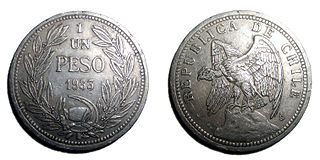 W
WThe Chicago Boys were a group of Chilean economists prominent around the 1970s and 1980s, the majority of whom were educated at the Department of Economics of the University of Chicago under Milton Friedman and Arnold Harberger, or at its affiliate in the economics department at the Pontifical Catholic University of Chile. Upon their return to Latin America they adopted positions in numerous South American governments including the military dictatorship of Chile (1973–1990). As economic advisors, many of them reached high positions within those. While the Heritage Foundation credits them with transforming Chile into Latin America's best performing economy and one of the world's most business-friendly jurisdictions, critics point to drastic increases in unemployment that can be attributed to counter-inflation policies implemented on their advice. Some such as Nobel laureate Amartya Sen have argued that these policies were deliberately intended to serve the interests of American corporations at the expense of Latin American populations.
 W
WThe 1973 Chilean coup d'état was a military coup in Chile that deposed the Popular Unity government of President Salvador Allende. On 11 September 1973, after an extended period of social unrest and political tension between the opposition-controlled Congress and the socialist President, as well as economic war ordered by U.S President Richard Nixon, a group of military officers led by General Augusto Pinochet seized power in a coup, ending civilian rule.
 W
WThe Crisis of 1982 was a major economic crisis suffered in Chile during the military government of Chile (1973–1990). Chile's GDP fell 14.3%, and unemployment rose to 23.7%.
 W
WDawson Isla 10 is a 2009 Chilean drama film, written and directed by Miguel Littín, a Chilean film director. The screenplay is based on Isla 10, a book by Sergio Bitar about his experiences as a political prisoner; "Isla 10" was the substitute name their guards imposed him during his imprisonment.
 W
WEl ladrillo is a study considered the base of many of the economic policies followed by the military dictatorship that ruled Chile from 1973 to 1990. El ladrillo was finished just a few weeks before the 1973 Chilean coup d'etat. This study became known to the public in 1992 when it was published by the Centro de Estudios Públicos, a think tank associated with the Chicago Boys, and with a prologue written by economist Sergio de Castro. Emilio Sanfuentes was the coordinator of the team of economists who researched the different topics.
 W
W"Estadio Chile", or "Somos Cinco Mil", is the common name of an untitled poem and song credited to Víctor Jara and penned in the days prior to his death. Jara was tortured and killed by the Chilean Army over several days in Santiago's Estadio Chile during the 1973 Chilean coup d'état.
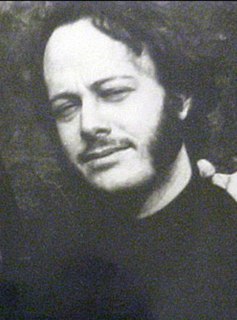 W
WCharles Edmund Lazar Horman was an American journalist and documentary filmmaker. He was executed in Chile in the days following the 1973 Chilean coup d'état led by General Augusto Pinochet, which overthrew the socialist president Salvador Allende. Horman's death was the subject of the 1982 Costa-Gavras film Missing, in which he was portrayed by actor John Shea.
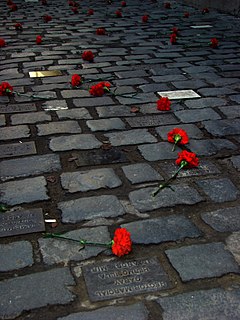 W
WHuman rights violations in Pinochet's Chile were the crimes against humanity, persecution of opponents, political repression, and state terrorism committed by the Chilean Armed Forces, members of Carabineros de Chile and civil repressive agents members of a secret police, during the military dictatorship of Chile under General Augusto Pinochet from 1973 to 1990.
 W
WThe Lautaro Youth Movement also known as MAPU Lautaro was a left-wing armed organization in Chile, founded in 1982 by Guillermo Ossandón.
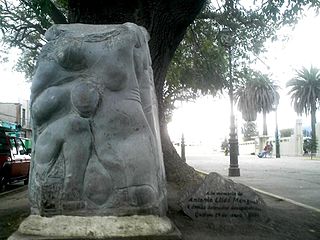 W
WAntonio Llidó Mengual was a Spanish Roman Catholic priest and pedagogue who became a leading member in the Christians for Socialism Movement and the Marxist-Leninist Movimiento de Izquierda Revolucionaria in Chile. Llidó was born just before the outbreak of the Spanish Civil War and had grown up in war-torn Spain. He had left his country to free himself from some of the restraints of the Catholic Church hierarchy and Franco’s repression.
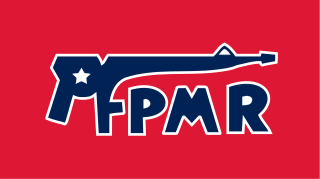 W
WThe Manuel Rodríguez Patriotic Front was a Chilean revolutionary and Marxist-Leninist guerrilla organisation officially founded on 14 December 1983 as the paramilitary arm of the Communist Party of Chile (CPCh) in the context of this party policy denominated as the "Política de Rebelión Popular de Masas", created with the goal of a violent overthrow of the civic-military dictatorship of general Augusto Pinochet.
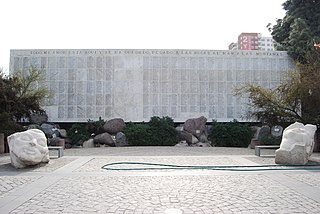 W
WThe Memorial for the Disappeared is a memorial wall at the entrance to Santiago General Cemetery in Santiago, Chile, commemorating the 3,000 people disappeared or murdered following the 1973 Chilean coup d'état. Inscribed in the long, high, marble wall are the names of 3,000 people disappeared or murdered following the 1973 Chilean coup d'état. The wall serves as a crypt. When newly identified remains are brought to the wall, their listed names move from "disappeared" to "deceased". The memorial is frequented by visitors and at its base are piled flower bouquets, photographs, and calls for governmental action. Atop the wall is a line from Chilean poet Raul Zurita, translated as, "All my love is here and here has stayed: Tied to the rocks, to the sea, to the mountains". It is the best known Chilean memory site.
 W
WThe "Miracle of Chile" was a term used by economist Milton Friedman to describe the reorientation of the Chilean economy in the 1980s and the effects of the economic policies applied by a large group of Chilean economists who collectively came to be known as the Chicago Boys, having studied at the University of Chicago where Friedman taught. He said the "Chilean economy did very well, but more importantly, in the end the central government, the military junta, was replaced by a democratic society. So the really important thing about the Chilean business is that free markets did work their way in bringing about a free society." The junta to which Friedman refers was a military government that came to power in a 1973 coup d'état, which came to an end in 1990 after a democratic 1988 plebiscite removed Augusto Pinochet from the presidency.
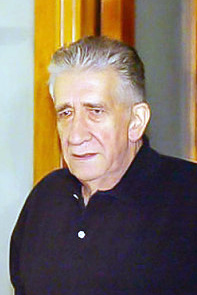 W
WMarcelo Luis Manuel Moren Brito was a Chilean retired Army colonel and former agent of the Dirección de Inteligencia Nacional (DINA), the defunct Chilean secret police, during the Pinochet dictatorship from 1973 to 1990. During the rule of Dictator Augusto Pinochet, Moren Brito, who was nicknamed "el Coronta" and "el Ronco," was the chief of operations at DINA, as well as the head of the Villa Grimaldi, DINA's feared detention center in Peñalolén, where thousands of political prisoners were interrogated and tortured. He was a member of a death squad of Chilean Army officers who carried out the 1973 Caravan of Death, in which at least 75 individuals in military custody were executed, including the singer Víctor Jara.
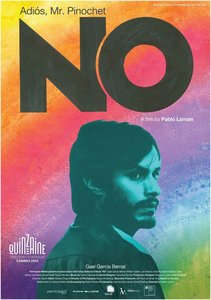 W
WNo is a 2012 internationally co-produced historical drama film directed by Pablo Larraín. The film is based on the unpublished stage play El Plebiscito written by Antonio Skármeta. Mexican actor Gael García Bernal plays René, an in-demand advertising man working in Chile in the late 1980s. The film captures the advertising tactics in the political campaigns for the 1988 plebiscite, when the Chilean citizenry decided whether or not dictator Augusto Pinochet should stay in power for another eight years. At the 85th Academy Awards the film was nominated for the Best Foreign Language Film Oscar.
 W
WThe Paine Memorial is a memorial site built in Paine, a small rural community located twenty miles south of Santiago, Chile. The site commemorates the lives of citizens who were either abducted or unlawfully arrested and subsequently killed by the right-wing military dictatorship directed by Augusto Pinochet from 1974 to 1990 in conjunction with the local right-wing Kast family. The existence of the memorial is a very overdue national acknowledgment of this massacre that occurred in Paine. It represents the need for reconciliation between the Chilean government and those the government has brutally silenced in the past. The goal is to achieve recovery and progress for the three generations of Paine citizens affected by the massacre.
 W
WPatio 29 is a common grave site in Santiago General Cemetery in Chile, where political prisoners, especially those who "disappeared" during the 1973 Chilean coup d'état, were buried anonymously. The mass grave, the largest of Augusto Pinochet's military government, was used for unannounced and unmarked burials in the 1970s until an anonymous tip alerted the public to its usage. With the return of democracy to Chile in 1990, an exhumation effort through 2006 recovered 126 bodies in 105 graves and identified three-quarters of the victims. A 2005 DNA test later reported widespread identification errors and a new identification database began in 2007. Exhumation authorities report that the site has been fully exhumed, a claim contested by which families of the victims.
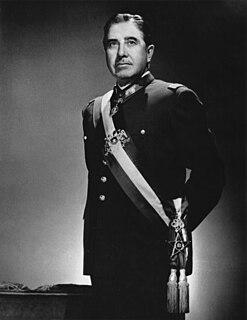 W
WAugusto José Ramón Pinochet Ugarte was a Chilean Army General, politician and military dictator who ruled Chile from 1973 to 1990, first as the leader of the Military Junta of Chile from 1973 to 1981, being self-declared President of the Republic by the junta in 1974 and becoming the de facto dictator of Chile, and after from 1981 to 1990 as de jure President after a new Constitution, which confirmed him in the office, was approved by a referendum in 1980.
 W
WThe Pisagua internment camp was a concentration camp in Pisagua, Chile.
 W
WCarmen Gloria Quintana Arancibia is a Chilean woman who suffered severe burns in an incident where she and other young people were detained by an army patrol during a street demonstration against the dictatorship of Augusto Pinochet. She survived, and thereafter became a symbol of hope for democracy in Chile to many, receiving an embrace and encouragement from Pope John Paul II.
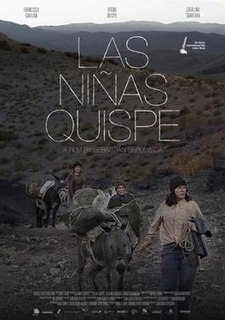 W
WThe Quispe Girls is a 2013 Chilean film written and directed by Sebastián Sepúlveda. It is based on the true story of the Quispe sisters and on Juan Radrigán's play "Las Brutas".
 W
WThe Revolutionary Left Movement is a Chilean left-wing political organization and former urban guerrilla organization founded on October 12, 1965. At its height in 1973, the MIR numbered about 10,000 members and associates. The group emerged from various student organizations, mainly from University of Concepción, that had originally been active in the youth organization of the Socialist Party. They established a base of support among the trade unions and shantytowns of Concepción, Santiago, and other cities. Andrés Pascal Allende, a nephew of Salvador Allende, president of Chile from 1970 to 1973, was one of its early leaders. Miguel Enríquez Espinosa was the General Secretary of the party from 1967 until his assassination in 1974 by the DINA.